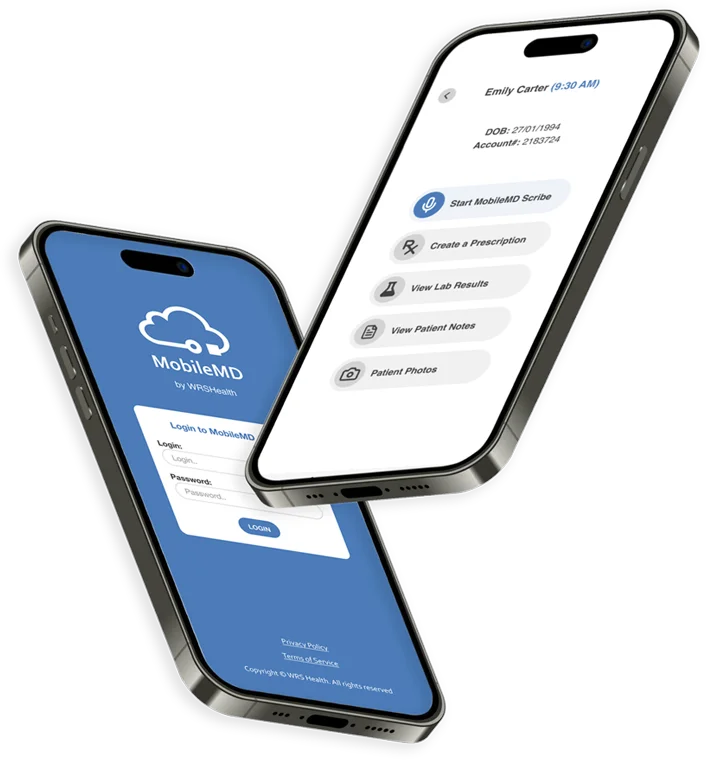
AI in OB/GYN Practices: What Works and What’s Just Hype
Discover key insights from Dr. Dunn on practical, proven uses of AI in OB/GYN practices—and how ObGyn-Cloud’s All In Intelligence helps doctors focus on care.
Our obstetrics and gynecology-specific EHR enhances patient, clinical, and billing journeys from the start—with expert billers improving collections, reducing denials, and keeping you informed every step of the way.
At ObGyn-Cloud, we’re All In Intelligence—because built-in intelligence creates real freedom and reduces the friction that slows obstetrics and gynecology practices down.
AI agents support the everyday tasks that pile up in OB/GYN and women’s health clinics—charting, coding, scheduling, billing, and follow-ups—streamlining workflows across prenatal care and gynecologic visits.
From intake to charting to claims, our agents handle administrative weight so you don’t have to—reducing manual work across front desk, clinical, and revenue cycle teams.
Every tool connects in one platform, eliminating extra logins, duplicate entry, and hidden add-ons across your clinical workflows, patient scheduling, front desk operations, and billing processes.
Designed with practicing clinicians, our EHR supports the daily demands of OB/GYN care: prenatal visits, high-volume gynecology encounters, in-office procedures, preventive screenings, diagnostic follow-ups, and long-term continuity of care across the patient lifecycle.
The result: fewer administrative headaches, faster documentation, and more time for meaningful patient care.
ObGyn-Cloud combines OB/GYN-focused workflows with intelligent automation that anticipates what your team needs and simplifies the business side of running a modern women’s health practice.

Visits end, but the work doesn’t. After a full day of prenatal checkups, annual exams, procedures, and screenings, detailed notes still wait—and tomorrow’s schedule is already full.
You can finally break that pattern.
With WRS MobileMD Scribe, your notes draft themselves in real time. Prenatal history, prior visits, lab context, imaging results, and procedure details are pulled in automatically. You review, sign, and move on—without taking hours of documentation home.
Need structured templates? The ObGyn-Cloud platform includes a full library built for obstetrics and gynecology: prenatal visits, annual exams, Pap smears, colposcopies, contraception counseling, post-partum visits, and more. Create your own reusable templates when you need something custom.
You do everything right, yet the claim comes back denied. Services tied to OB/GYN visits are missed, modifiers are flagged, or follow-ups lag. Staff spend hours chasing payors, delays pile up, and patient frustration grows.
Built-in coding support, eligibility checks, and an integrated scheduling and billing calendar help prevent issues before they happen. Claims go out clean, payments return faster, and your OB/GYN revenue cycle becomes predictable again.
Need additional support? Our billing services deliver industry-leading results*:
*Results based on individual clients. Metrics may vary.

Managing follow-ups shouldn’t rely on memory or sticky notes. ObGyn-Cloud automatically tracks labs, imaging, preventive screenings, and diagnostic results—sending reminders when patients haven’t completed follow-ups or required care.
From prenatal labs and ultrasounds to mammograms and routine gynecologic screenings, nothing slips through the cracks. Medication histories, lab results, and patient communication are captured directly in the EHR, giving you the full picture without extra work.
ObGyn-Cloud supports the full spectrum of women’s health care and delivers an EHR for obstetrics and gynecology that works across every role in your practice.


Discover key insights from Dr. Dunn on practical, proven uses of AI in OB/GYN practices—and how ObGyn-Cloud’s All In Intelligence helps doctors focus on care.

Discover cost-effective OBGYN marketing strategies that help women’s health practices attract patients and increase revenue for OBGYN practices.

A strong online reputation builds trust, attracts new patients, and strengthens your brand. Learn seven proven ways to manage your OB/GYN practice reputation.